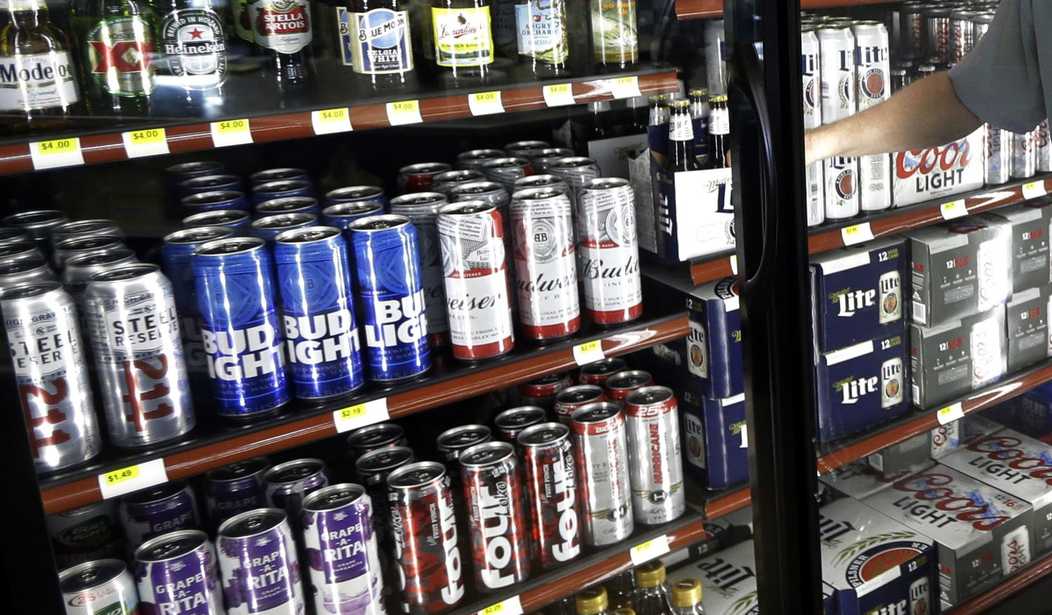The Supreme Court is deciding a complicated case about the power of states to pass laws regulating alcohol. This is a case that splits conservatives between those who don’t want the federal courts empowered to strike down state laws versus ones who believe it constitutional. This case will test Federalist Society members of the Supreme Court to see if they are truly federalists.
Although this is a complex case, this is a case about the power of the people in a state to control state law. When it comes to alcohol, some places are dry and don’t allow any alcohol. Some have old laws that prevent Sunday sales. Others limit sales in officially sanctioned stores and others allow only beer at gas stations. The laws of the many states are very different because the people in different states want different laws. I find it liberating that each state can regulate itself like this, even if I find some of the laws ridiculous, it demonstrates the uniqueness of each place. That uniqueness can be changed by the very people living under the law at the state level not some bureaucrat far away.
Alcohol has been the cause of intense contention in American politics for more than a hundred years. If America has proven one thing, it has proven the failure of a national federalized prohibition of alcohol. My home state of Iowa actually attempted prohibition more than once prior to the national prohibition. In 1882 Iowa passed a prohibitory amendment to its state constitution. On the local level it was abject failure. It caused riots in the streets, legal challenges at the state Supreme Court, and full polarization of the people for and against it. Eventually, the people of Iowa got rid of the law as an utter failure in the late 1880s. That is how it should be.
Recommended
Then a few years later the 18th Amendment and its federalized prohibition came along forcing yet another unwanted prohibition onto my state and the entire country. Images of Al Capone and gangsters abound as a time of great disdain for law spread across the nation as perhaps the most unpopular law ever in force. Finally, the 21st Amendment repealed the disliked prohibition and returned control of alcohol sales and consumption to its rightful place with the states. Alcohol is not Coca Cola or deodorant or gum, it is a unique product that many drink. Its consumption impacts health and the way people act.
The people of a state have a right to pass laws that require people to not drink and drive. They can pass any law they want related to alcohol as long as the constituents of that state are behind it. That is why a state has the right to require people to live in that state for a period of time before they open a store selling alcohol.
On January 16, 2019, the case of a man who violated a Tennessee alcohol license law was the subject of oral arguments before the U.S. Supreme Court. Amy Howe of the ScotusBlog wrote on January 16, 2019 “At today’s oral argument in Tennessee Wine and Spirits Retailers Association v. Blair, the justices considered exactly how expansive that regulatory power is. In particular, does the 21st Amendment allow Tennessee to impose a two-year residency requirement for anyone who wants a retail license to sell alcohol there, or is the state’s power instead limited by a doctrine known as the dormant commerce clause, which bars states from discriminating against interstate commerce?” A federal district and appeals court struck down Tennessee’s residency requirements to obtain an alcohol retail license.
The Wine Spectator published a description of the law being challenged on January 11, 2019 as follows: “When the state of Tennessee legalized the sale of alcohol in 1939, it created a three-tier system and imposed residency requirements for retail liquor licensees. A licensee must have been a resident of the state for two years before obtaining an initial license. And while that license expires after one year, the licensee must be a resident for 10 years in order to renew. Additionally, 100 percent of the retail company's officers, directors and stockholders must meet these requirements.” A dumb and outdated law? Maybe, but dumb and outdated does not equal unconstitutional.
If a state law has problems, it is the duty of the people of the state to make it right through democratic means. States have passed many laws that encourage commerce in a state. A residency law is nothing more than encouraging people to stay in a state and it passes the reasonableness test. The Tennessee law seems a bit extreme, but the people of that state need to fix the law – not some federal judge.
Constitutional conservatives can read the text of the 21st Amendment that gives the states power over alcohol regulation. Section 2 of that amendment states “the transportation or importation into any State, Territory, or possession of the United States for delivery or use therein of intoxicating liquors, in violation of the laws thereof, is hereby prohibited.” Some point at the Commerce Clause as authority for the federal courts to strike down what some consider protectionist laws, yet the states should be allowed to govern themselves.
The truth of the matter is that the federal government, be it Congress, the president, or Supreme Court should have learned by now that federal control of alcohol is a huge mistake. The SCOTUS should kick this case back to Tennessee and let them fight it out.
























Join the conversation as a VIP Member